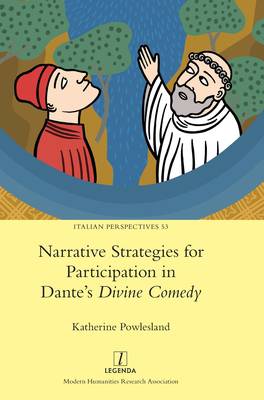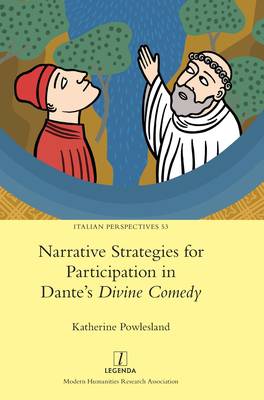
- Retrait gratuit dans votre magasin Club
- 7.000.000 titres dans notre catalogue
- Payer en toute sécurité
- Toujours un magasin près de chez vous
- Retrait gratuit dans votre magasin Club
- 7.000.0000 titres dans notre catalogue
- Payer en toute sécurité
- Toujours un magasin près de chez vous
Narrative Strategies for Participation in Dante's Divine Comedy
Katherine PowleslandDescription
Since the earliest days of its circulation, Dante's Divine Comedy has drawn readers into conversation with it, but what is it that makes the poem so particularly involving? And why might videogames help us understand this better? Drawing on new theories in cognitive neuroscience and videogame critical theory, in this ground-breaking analysis Katherine Powlesland reveals the narrative strategies by which Dante invites the reader into an unusually cognitively participatory experience of the journey out of the dark wood and towards the encounter with the divine. By reading key narrated interactions in the poem through certain videogame mechanics of participation, Powlesland sheds new light on the poet's ingenious deployment of textual narratological mechanisms of immersion, world creation, perspective, narrative mediation, and narrative indeterminacy. In this way, she demonstrates how Dante's narrative innovations cue an experience of embodied immersion - so-called 'presence' - at the virtual encounters of the poem, blurring cognitive boundaries between the virtual and the real, and irresistibly drawing the responsive reader into repeated participation in those conversations.
Spécifications
Parties prenantes
- Auteur(s) :
- Editeur:
Contenu
- Nombre de pages :
- 186
- Langue:
- Anglais
- Collection :
- Tome:
- n° 53
Caractéristiques
- EAN:
- 9781839540370
- Date de parution :
- 29-08-22
- Format:
- Livre relié
- Format numérique:
- Genaaid
- Dimensions :
- 170 mm x 244 mm
- Poids :
- 498 g

Les avis
Nous publions uniquement les avis qui respectent les conditions requises. Consultez nos conditions pour les avis.






